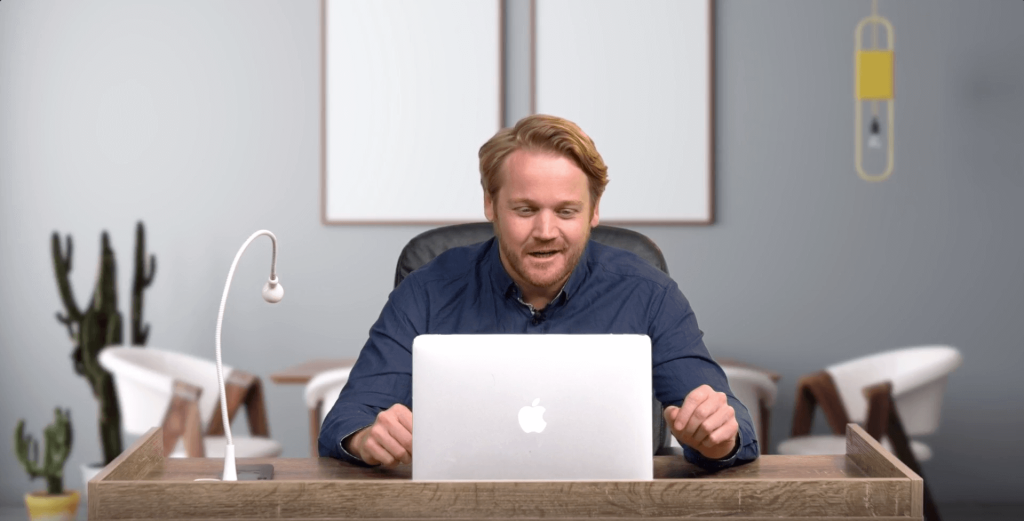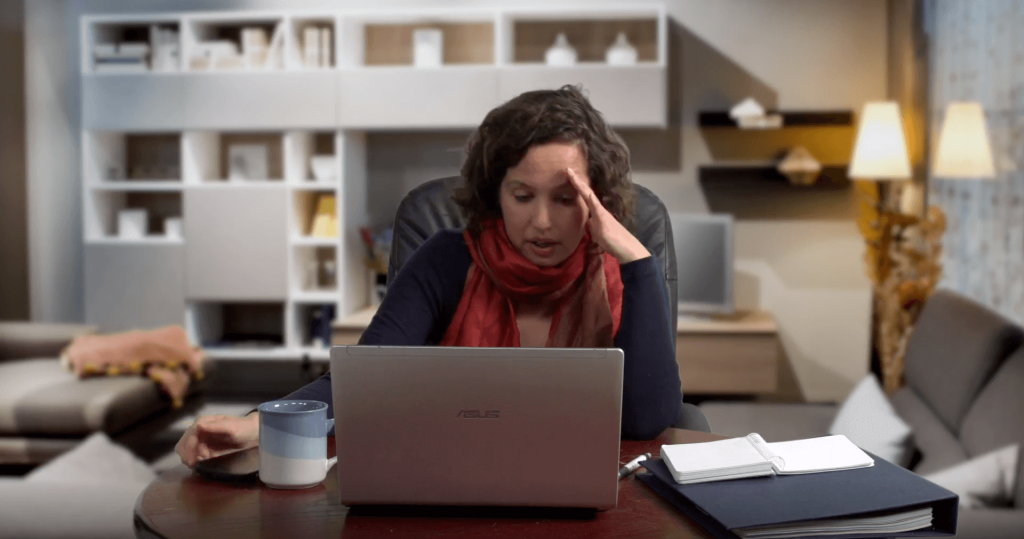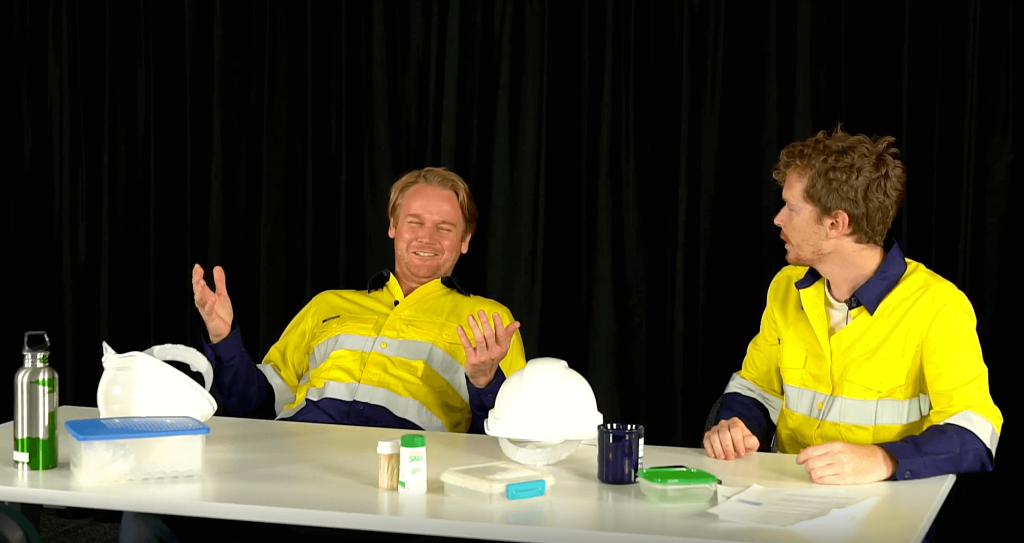Talking about mental health and prevention strategies can sometimes seem like common sense practice so it’s often overlooked. A good place to start to notice stress in the workplace is to pick up on noticeable signs.
What does workplace stress look like?
Stress is a normal response to change and dealing with day to day workloads in a workplace. It is a psychological hazard because prolonged exposure to stress can lead to serious mental health issues.
Here are some signs and symptoms of stress outlined by the Head’s Up (2020)
- chest pain or a pounding heart
- fatigue
- reduced interest in sex
- nausea, diarrhoea or constipation
- getting colds more often
- muscle tension, pains and headaches
- episodes of fast, shallow breathing and excessive sweating
- loss or change of appetite
- sleeping problems
- feeling overwhelmed or frustrated
- feeling guilty or unhappy
- being irritable
- losing confidence and being indecisive
- thinking negatively
- having racing thoughts
- memory problems
- excessive worrying.
What does workplace Burnout look like?
Here is a summary of some insight on what burnout looked like for one of our guest speakers. Carla was invited to speak at a mental health month initiative in 2020. This story was recorded as part of the Women in Business Live Panel – Workplace Mental Health event. To access a full recording of the event click here: https://youtu.be/AdxYdrOrclQ
“I’ve a visit to the doctor’s… he asked me “How can I help?” My response was, I need you to get me to stop, work is killing me.
The workload is just so overwhelming. I don’t have enough staff. I’m constantly living away from home in hotels. And I’m averaging a 70 to 80 hours a week, every week just to try and stay on top of things. I rarely see my boss. And there’s no support coming, even though I’ve asked for it and proposed strategies for how this could change…work has become this unhealthy addiction, something that I can’t step away from, and I need that help to be able to step away.”
Signs and symptoms:
“I have permanent headaches, ringing in both of my ears and a bad back. I had chronic fatigue…I had shortness of breath. My bowels weren’t functioning particularly well. I had a lack of concentration and this really weird communication deficiency where when I was speaking, my fluidity of speech was all over the place, things were coming out back to front and I had a really foggy mind.
… I’d lost the ability to relax. I’d lost interest in exercise and socializing. And they were the things really that were sustaining me previously in terms of, you know, resting and playing and be able to have that creative mind that you need to lead and manage a business and team.
I also had heart palpitations. I’d feel jumpy…someone could approach me and I jumped out on my skin… And the one thing that really got me, which as a leader I pride myself on, is my decision making and problem-solving ability reduced dramatically.”
How to Intervene Early?
1.Notice the signs – Look out for signs and symptoms.
2. Share your concerns – I am worried about you.
3. Provide resource support e.g. crisis support numbers.
4. Support intervention – Encourage the individual to seek help.
5. Seek support immediately – If an individual is at harm to themselves or others act immediately.
6. Avoid accidental counselling – Health professions are best placed to fill this role.
7. It’s ok to ask for help – It’s ok to verbalise that you do not know how to respond and that you are going to seek professional help to support an individual further.
8. Not acting is not ok – If you see signs it’s vital to act on it.
Intervention Strategies
If you wait until you are experiencing signs of burnout due to unresolved stress levels. It is too late to apply early intervention strategies to take care of your own wellbeing. Some tactics that are helpful to put into place before it gets too much includes steps such as:
• If you know you have a busy few weeks scheduled you will need to be able to prioritise your own self-care during this time.
• As soon as you notice you are not coping with increased stress and pressure at work you need to be able to speak up about it. Not sharing what’s going on may make it harder for the workplace to support you during this time. Not acting on it early can escalate the issue and push it into a crisis which could lead to more serious health consequences.
• Workplace culture can vary depending on the business. It is not uncommon for staff to feel like you are not getting support from direct management or supervisors. In this instance if your mental health is affected you need to seek additional help to get support during this time. Is there anyone else in your workplace that you can chat to? Do you have any stakeholders in your network you could get this support from e.g. personal, professional, and community.
• If your mental health is impacted by stress at works you can always reach out to your local GP to get on a pathway for further mental health support. Many workplaces will have an Employee Assistance Program to link you in with.
What you can do to reduce workplace stress as an early intervention strategy?
Each business is different however there are some important and versatile steps you can take to create a supportive environment at work.
What can an individual do?
· Take time out – if you are nearing your limits then there are signs you may need to take time out.
· Double down on your self care – make sure to take care of yourself so that you can sustain your efforts long-term. E.g. take time out for exercise and eating well.
· Reduce your hours – take time out to reflect on what you are in control of changing. If you finding you are taking work home? What workloads can you reduce your hours in?
· Invest in you – what is an activity that you do that puts you in a state of joy? E.g. hobby.
· Set boundaries – leave work on time and do what you need to do to keep work worries at work.
What can a workplace do?
· Set up a wellness culture – educate your staff on early intervention practices and invest in wellness.
· Create mental health polices – supporting policies in this space can help address a prevention angle. Too many businesses cover mental health crisis response only and struggle to know how to prevent incidents occurring.
· Host awareness activities – support your team in knowing that they can seek professional help through the local GP though a mental health care plan or an EAP service. Best practice recommendations also include supporting awareness strategies to keep staff well.
· Audit support protocol – do your current support protocols work? Are staff comfortable reaching out to a manager or supervisor about their wellbeing needs? Being proactive about collecting insights from your team can help put strategies in place to mitigate barriers of seeking help and stigma.
· Prioritise your people – show an appreciation for your team by going out of your way to thank them for their efforts. 2020 was a big year and many people are still feeling the toll of the stress from it.
What can Mind Blank do to help?
In order to shine a light on how to identify and act on signs of mental health issues. Mind Blank programs support awareness mental health education in the workplace.
Working alongside the team can support the implementation of wellbeing strategies in a workplace. Program facilitators can provide insight to reinforce early intervention tactics and help identify policy gaps in fast and ever-changing environments that can help your workplace move from reaction to prevention of mental health issues.
Our team can offer quality products that are fun and engaging as well as educational and humanitarian.
For more information please visit our workplace page.
Crisis Support Numbers
Here are some suggested links and numbers to call for help. If you are supporting someone in a time of need and require immediate support call 000.
Lifeline 13 11 14
Beyond Blue 1300 224 636
National Coronavirus Helpline https://headtohealth.gov.au/
My method on how to filter the noise of too many tasks and decide what to focus on, was selected by one of Australia’s leading psychologists and published as a chapter in “The Home Therapist”. If you are open to some clear and simple insights, rather than purchase the book, Sam is willing to send Mind Blank subscribers a copy of the chapter for free.
Text your name, email address and the words “Free Chapter” to 0414 301 671and we will send you a free copy of this chapter.
Warmest regards, Sam Tornatore B.Com

The Trusted Authority in Productivity and Getting Things Done
07 3150 9141 or admin@samtornatore.com
For further information about Sam and how he has helped others, please visit www.samtornatore.com ;or email his assistant Joanne at admin@samtornatore.com






